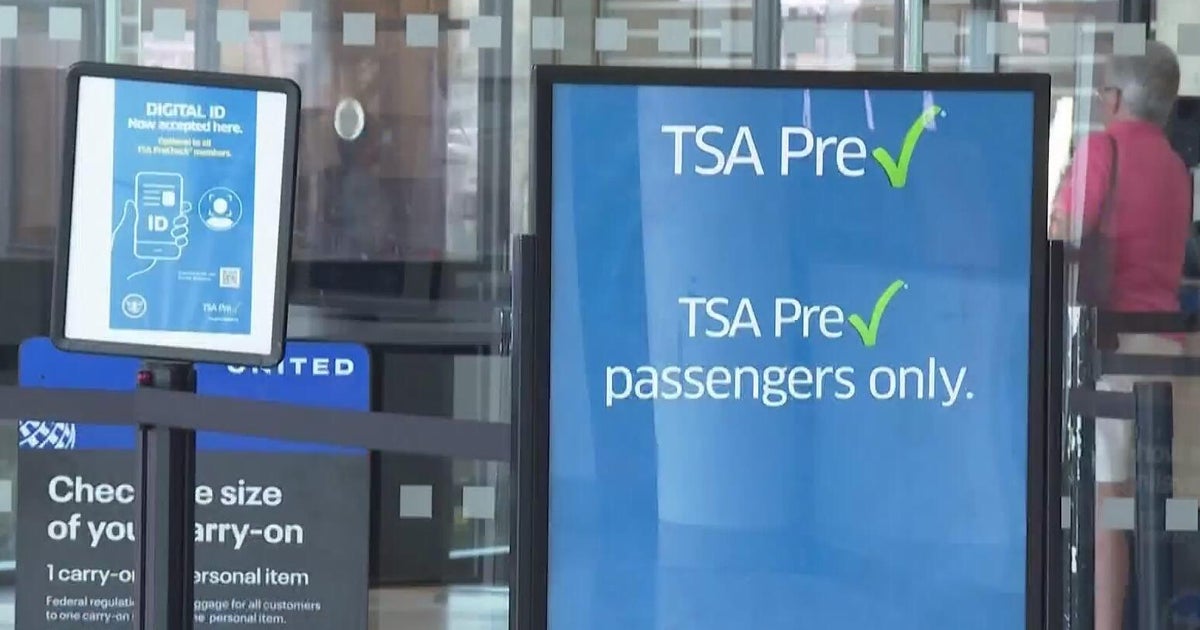What Can You Deduct If You Are Self-Employed?
BOSTON (CBS) - So what can you deduct if you are self-employed? A lot!
Let's start with your car. You can either deduct the actual expenses of driving your car or you can use a mileage allowance set by the IRS. Currently for this year its 56.5 cents a mile for business travel.
If you choose the actual expenses, you would deduct gas, oil changes, new tires, insurance, excise tax, etc. With the mileage allowance, you only need to keep track of the miles you travel for business. You get to deduct tolls and parking fees no matter which method you choose.
Health Insurance Premiums: You can deduct 100% of the cost of your premiums. This is a nice perk!
Social Security: As a self-employed individual you will be responsible for paying both the employee's and the employer's share of Social Security and Medicare taxes on your earnings. However, you will get a deduction for the employer share's you pay.
Home Office Deduction: You may be eligible if you use the office exclusively and regularly in your business. There must be no other place that you conduct business. For more information, see IRS Publication 587, Business Use of Your Home.
Travel: You can deduct your travel expenses if they are legitimate. If you are on vacation and make a sales call you cannot write off the whole trip. A part of the trip though. If you add a weekend away to your business trip you should deduct only the business portion of the trip.
Entertainment: There are limits as to what you can deduct under meals and entertainment. This is an area that the IRS feels is abused by small businesses so keep good records and always be able to justify an expense. Who you took out to dinner and why you took them out to dinner.
Two IRS publications that are useful for small businesses are, Publication 535, Business Expenses and Publication 463, Travel, Entertainment, Gift and Car Expenses.
One more thing: From the IRS -
Five Facts about the Home Office Deduction
With technology making it easier than ever for people to operate a business out of their house, many taxpayers may be able to take a home office deduction when filing their federal tax return next year.
Here are five important things the IRS wants you to know about claiming the home office deduction.
1. Generally, in order to claim a business deduction for your home, you must use part of your home exclusively and regularly:
- As your principal place of business, or
- As a place to meet or deal with patients, clients or customers in the normal course of your business, or
- In the case of a separate structure which is not attached to your home, it must be used in connection with your trade or business
For certain storage use, rental use or daycare-facility use, you are required to use the property regularly but not exclusively.
2. Generally, the amount you can deduct depends on the percentage of your home that you used for business. Your deduction for certain expenses will be limited if your gross income from your business is less than your total business expenses.
3. There are special rules for qualified daycare providers and for persons storing business inventory or product samples.
4. If you are self-employed, use Form 8829, Expenses for Business Use of Your Home, to figure your home office deduction. Report the deduction on line 30 of Schedule C, Form 1040.
5. Different rules apply to claiming the home office deduction if you are an employee. For example, the regular and exclusive business use must be for the convenience of your employer.
For more information see IRS Publication 587, Business Use of Your Home, available on IRS.gov or by calling 800-TAX-FORM (800-829-3676).







